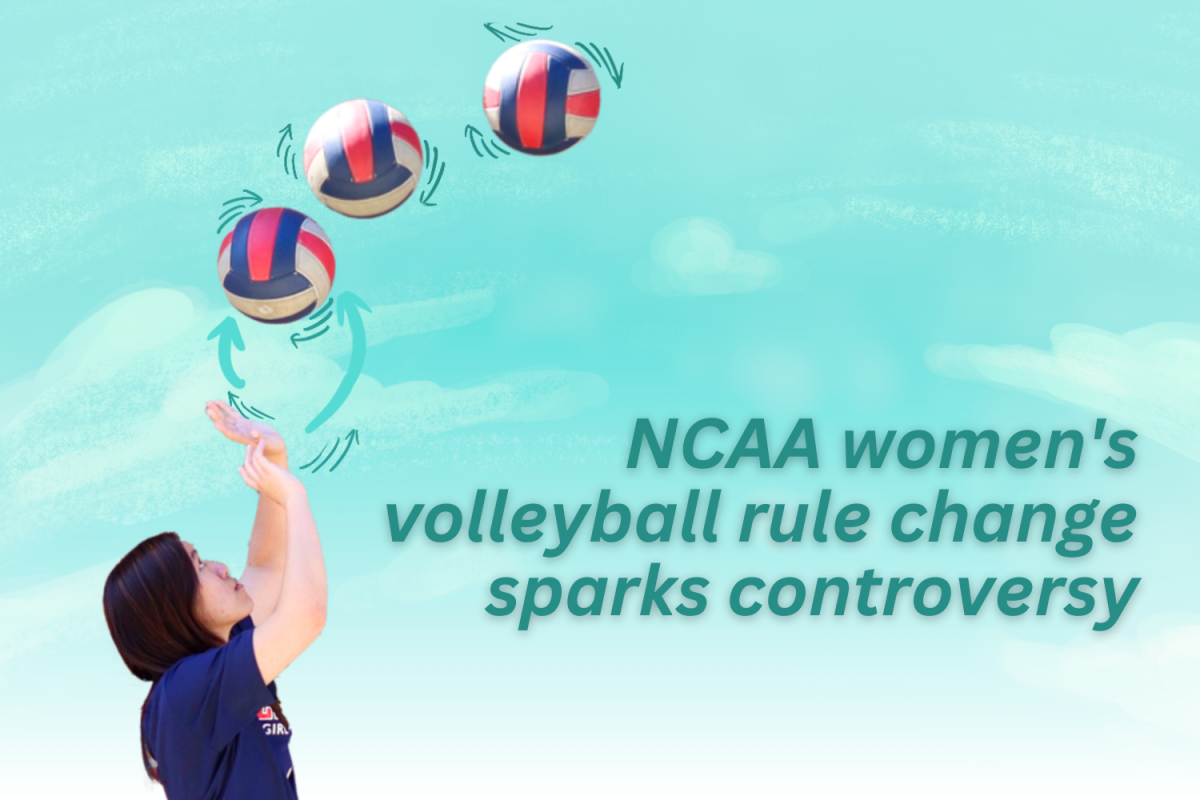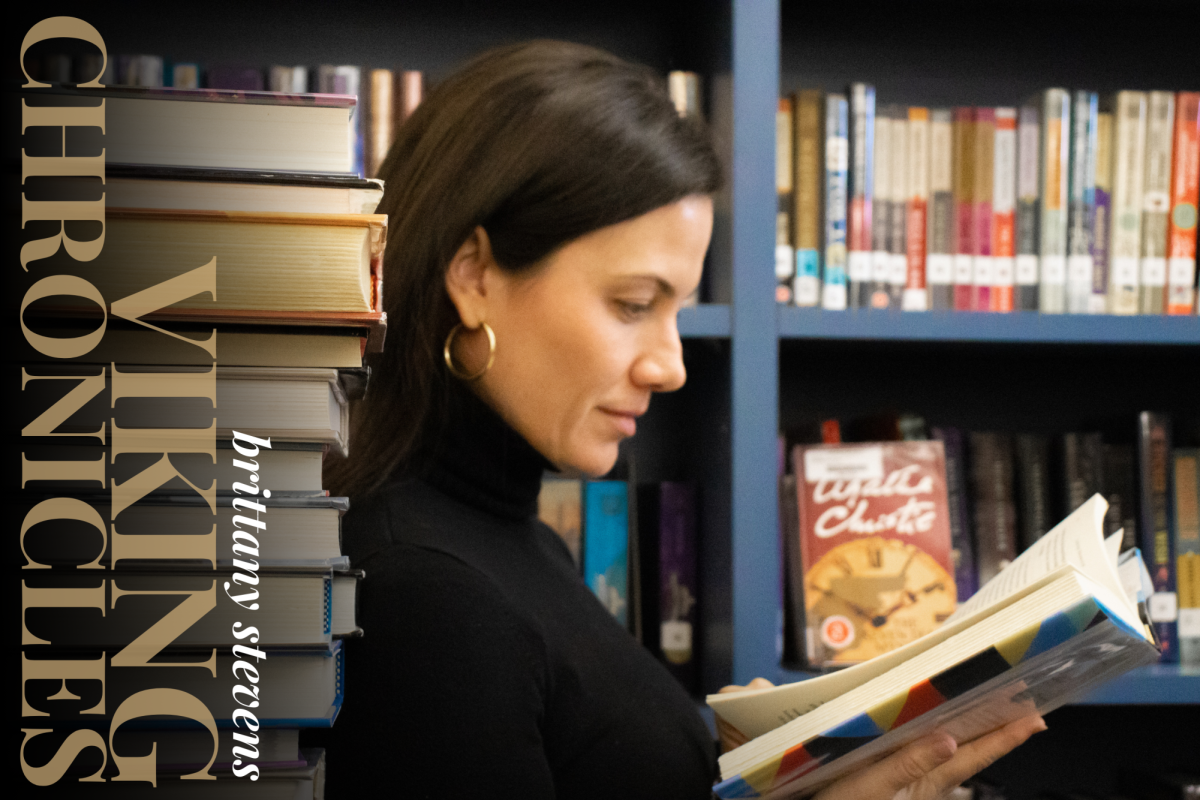The National Collegiate Athletic Association has shaken the world of women’s volleyball with its recent decision on Feb. 20 to allow double touches by setters in offensive plays. This overturning of the rule has sparked controversy among players and fans alike and will affect collegiate-level volleyball players, presenting a challenge to those who have spent years perfecting their set to adhere to previous regulations.
Representing over 1,000 colleges and universities in the nation, the NCAA is a nonprofit association that regulates intercollegiate student athletics. The recent ruling is one among a slew of new guidelines that have been released by the oversight panel. The others include permitting two liberos — a back-row player — to switch on and off the court within the same set, allowing more types of small, tightfitting jewelry during gameplay, authorizing interference above the net to be challenged in video review and requiring all protests to be resolved during matches. The final, new rule permits referees to issue administrative sanctions to home teams in the event that spectators encroach playing areas and the host administration fails to resolve the issue.
“I don’t like the double rule; if we allow setters to double, why not just allow hitters to net or liberos to let the ball bounce?” senior and varsity volleyball player Maddie Badger said. “I like the two liberos rule because sometimes liberos can have different specialties, such as serve and receive versus defense, so you can switch out your libero according to their strength.”
In a typical play, a defensive player, who stands in the back row, passes the ball to the setter, stationed in the front right position. The setter then sets the ball toward the hitter and the hitter sends the ball over the net. This accumulates to three contacts with the ball, the previous maximum amount allowed in an offensive play. The new rule allows setters, or whoever has the ball on the second contact, to quickly touch the ball twice without losing a point for the double contact, more colloquially known as “a double.” Had a player done this prior to the rule regulation, the other team would have gained a point for exceeding the 3-touch limit. However, the new leniency towards setting may usher in sloppier technique.
“Plays will become less strict because, before, if you doubled, the play would have stopped and the point would automatically go to the other team,” junior and varsity volleyball player Felicia Huang said. “But now, you can keep playing so other errors can be made.”
This new rule has sparked controversy as veteran players were required to craft the “perfect set” in previous years of training, seeing that athletes represented by the NCAA fall under the Division I to III categories and have accumulated a great repertoire of skills to reach this point in their athletic career. The new protocol not only undercuts all of the conditioning these athletes underwent to perfect their sets but also forces them to unlearn this behavior to follow formerly unacceptable technique.
“I will be playing in college next year and my college coach said that we will proceed as if the new rule does not exist, because clean sets are an essential part of the game,” Badger said.
Double contact can be caused when a setter’s hands are not perfectly even when positioned on the ball. Referees can usually identify an instance of this as the ball will be sent into a spinning motion indicating more than one touch. However, the ball rotating makes it harder for the hitter to act upon receiving the ball.
“With this rule, a whole new set of tactics will be introduced — perhaps strategic ways to spin the ball,” senior and varsity volleyball player Valerie Eng said. “Players can now spin the ball intentionally, which can change the play or shift the trajectory of the ball, making it a lot harder to hit and block.”
Setting during offensive plays is often a catalyst for heated debates among volleyball officials and coaches during tournaments due to confusion of whether or not a double contact was performed. The NCAA reasoned that the new ruling would bypass such disagreements and offer more consistency throughout games. Moreover, by encouraging the continuation of gameplay, tournaments would foster greater entertainment for spectators and players alike.
“The new rule might make referee calls more neutral because they cannot be biased toward any team and say that the ball spinning was from a double,” Huang said.
On the other hand, the new guidelines could prove to be advantageous for less experienced athletes or non-setters who struggle with proper setting technique. The ruling places less emphasis on the strict three-contact maximum, allowing for room for imperfect playing etiquette.
“A lot of people will still keep their sets clean and keep training the same way,” Eng said. “Regardless, as time goes on, there’s going to be less emphasis on having a good set.”

































































